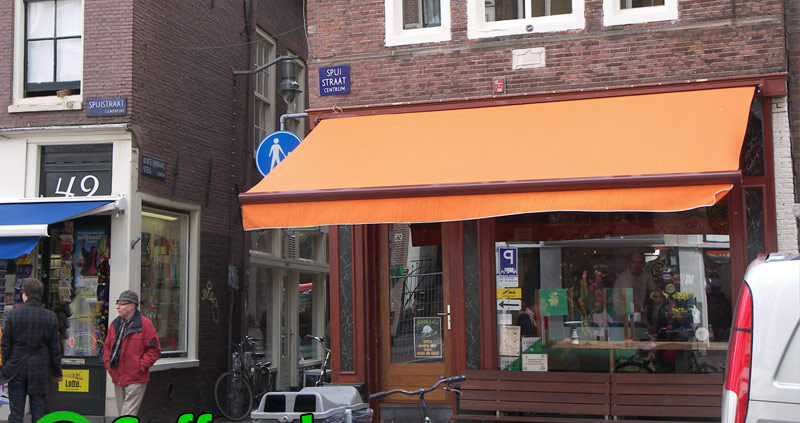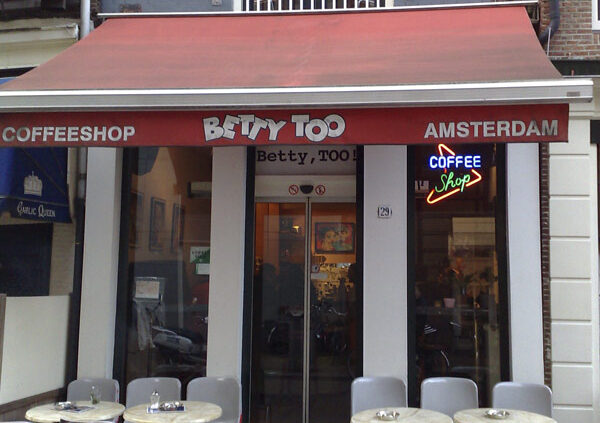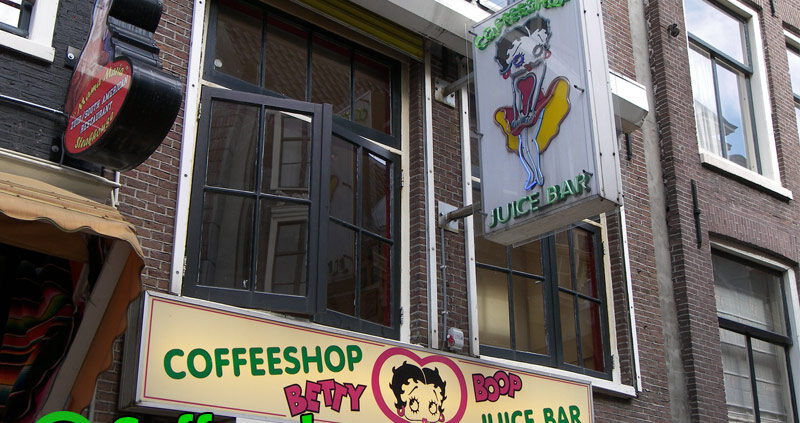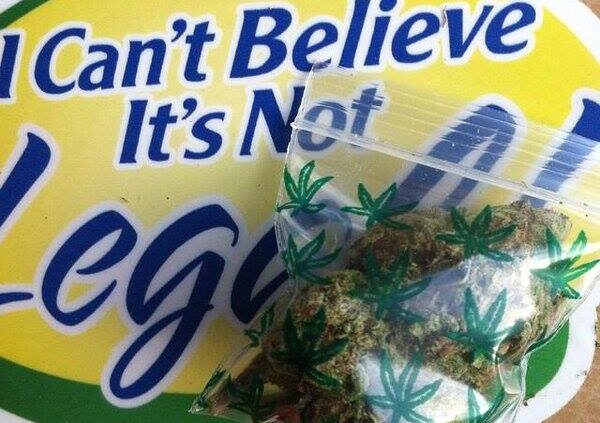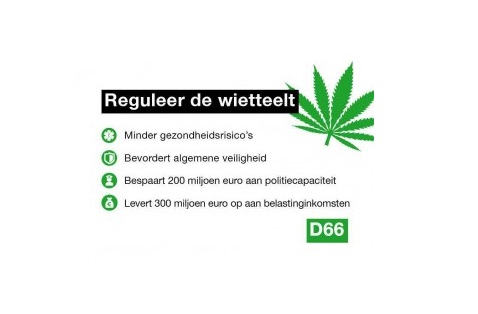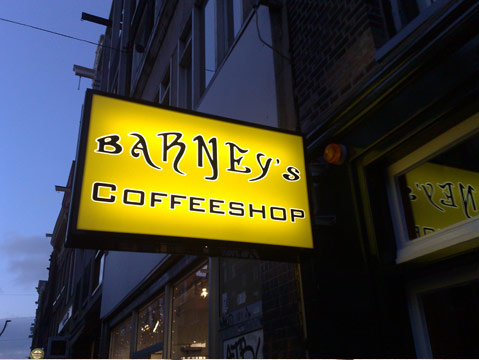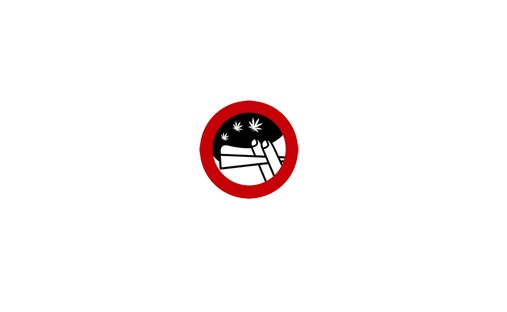Posts
Four decades after the decriminalization of marijuana in the Netherlands, the Dutch parliament today finally voted on policy to regulate the weed supply chain.
The back door supply chain has been a point of debate between coffeeshops and the government for 40 years. Although coffeeshops are licensed to sell small amounts of cannabis under strict guidelines, the manufacture and delivery of the product is strictly illegal, with risk of punishment.
Under new back-door regulation policies, the coffeeshops can operate without such fear of prosecution. .also. quality control ..
It all sounds like good news but we can question the value of this vote as two weeks from now the Dutch national elections will take place and major power shifts are on Holland’s political horizon. Looking at the polls, a reshuffled parliament (and the following government) may not be able to reach the same majority needed to accualy change policy in the following term.
A fresh proposal from the Dutch social-liberal party, D66, wants to customize the policy on cannabis. With these proposed changes, the cultivation and supply of cannabis will be regulated together with coffeeshop retail, and become part of a closed supply chain.
Growers would require a tolerance decision from the Minister of Health. The production of cannabis would remain illegal, but no longer punishable. Growers would also become taxable, and at long last the production of marijuana and hashish can be held to account regarding public health standards.
Hash and weed would be delivered to the coffeeshop sealed inside labelled packages containing up to 5 grams. This way coffeeshops can be supplied in a responsible manner, and consumers know exactly what they’re getting.
How to impliment this new policy on the ground would be largly left up to the municipalities.
After some months of reconstruction/ foundation work, the shop has been completely restyled. The coffeeshop, open 7.00AM in the morning is known for it’s breakfast, nice decoration and smoke. So for those loving that old design.. It’s out! We know… time flies people.
As like his colleagues Green House and Dampkring, also Derry from Barney’s decided to dump the spacy look of his shop and turned it into a somewhat more upscale coffeeshop with simple design and plenty of light.
Amsterdam is known to be a liberal city. Although many people exaggerate the freedom here, the Amsterdammers and Dutch in general do have a few liberties that are unique in the world. Still, whenever you visit a city in a foreign country it is always a good idea to inform yourself about the local laws and rules. In Amsterdam’s case this can be a difficult task, therefore this article will try to inform you about the basics of the Dutch legislation and specific things you should know about Amsterdam and its Coffeeshops.
In the Netherlands we distinguish between two types of drugs: soft and hard drugs. By law both of them are illegal, but the use and possession of small amounts of soft drugs is decriminalized and regulated. This led the Dutch to having a unique drugs policy in the world. Although the use of addictives in general is discouraged, the Dutch politics reasoned that cannabis does not have physically addictive qualities, and are not more harmful than, say, alcohol. Therefore the Netherlands allow limited forms of possession and trade in soft-drugs.
The specific rules are as follows:
• You are allowed to purchase and possess up to five grams of cannabis. Possessing more is interpreted as if you want to trade it, which is illegal.
• Only specially permitted “Coffeeshops” are allowed to sell soft drugs, and never more than five grams per person per day. You have to be 18 or over to access a Coffeeshop.
The paradox in the Dutch drugs policy is that the growing and trading of large amounts of soft drugs is illegal and not allowed, yet Coffeeshops still need to buy their stock. This phenomenon is referred to as the “back door/ front door” paradox: Coffeeshops are allowed to sell (and pay taxes for it), but can not legally buy stock.
It is not illegal to smoke outside the Coffeeshop, but things have changed over the past few years, and it is no longer acceptable to smoke cannabis just everywhere.
Restricted areas around Central Station and the Red Light District have a “zero tolerance” policy. In other areas in Amsterdam where it is forbidden to smoke Marijuana, official “no-pot-smoking” street signs will indicate this clearly.
Although you are not expected to know local regulations, you might very well risk a fine when smoking in these areas.

